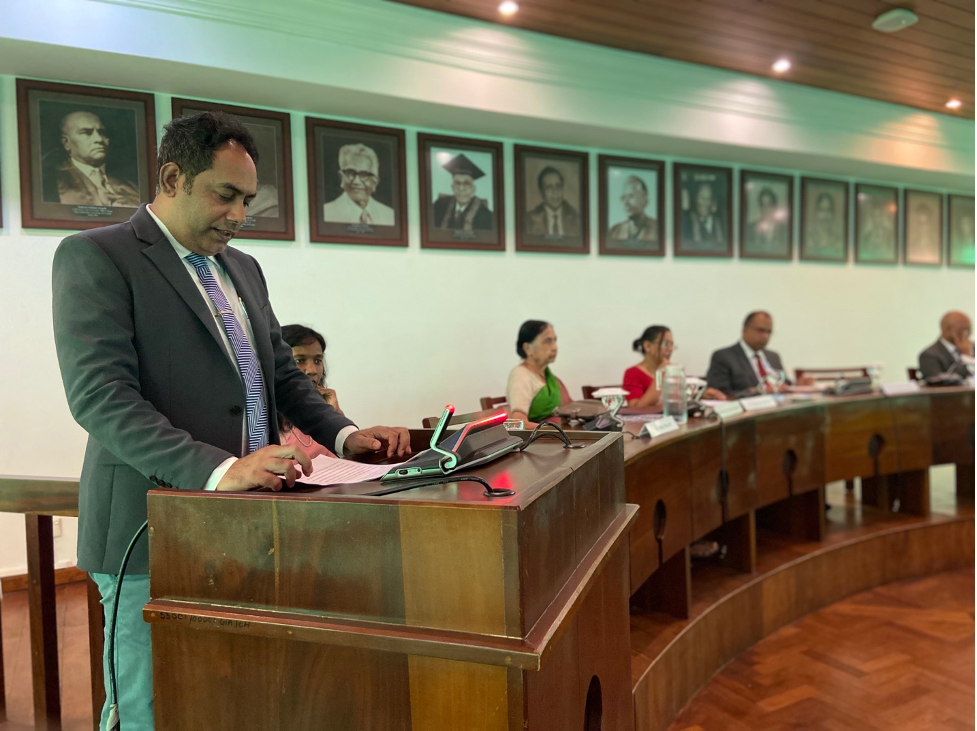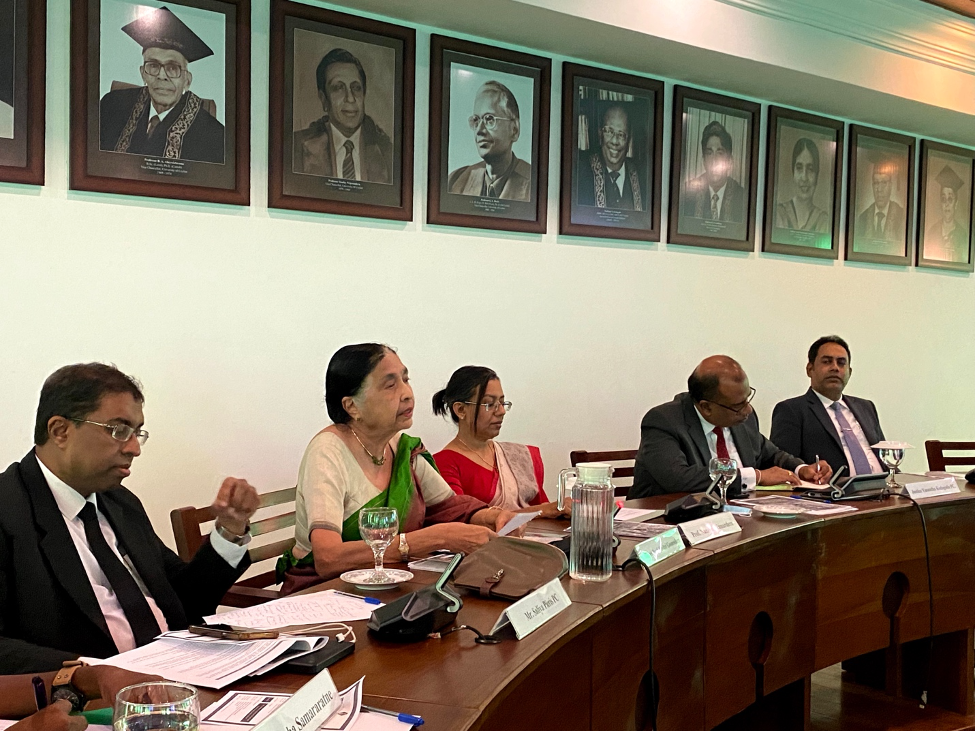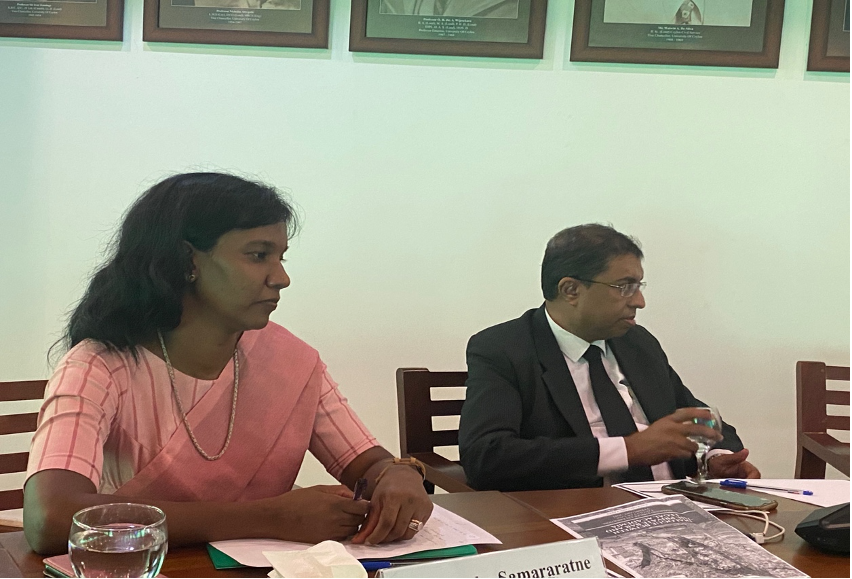Dialogue between the Private Bar and Legal Academia in Sri Lanka
The Faculty of Law convened a “Dialogue between the Private Bar and Legal Academia” on the 9th of February 2023 as a part of the ongoing celebrations to mark its Diamond Jubilee. Members of the private bar and law academics were welcomed to the event by the Dean of the Law Faculty, Prof (Dr) Sampath Punchihewa. In his remarks, Prof Punchihewa highlighted the commitment of the Faculty to strengthen the relationship between legal academia and the bar. He further recalled that a dynamic partnership with the bar is essential to the Faculty of Law in fulfilling its mandate.
The Dialogue consisted of two panel discussions. The first was chaired by Prof Naazima Kamardeen and explored the relationship between the private bar and legal academia from a South Asian Perspective. Dr Saif Mahmood, an advocate of the Supreme Court of India and a visiting researcher at the University of Oxford, delivered the keynote address. Speaking from the perspective of a practitioner, he noted that “[We] will both have to give up [our] imperiousness” and engage in a more holistic approach towards strengthening the more common legal language between the private bar and academia and reduce the gap between academic perspectives and practical application of the law. Emeritus Prof Savitri Goonesekere, in her response, took the view that an effective academic legal education brings together the theoretical and the practical. She emphasised that academics of the modern day need to identify that the “ethos” for both academics and practitioners needs to be the same while keeping the Constitution and constitutional values as the bedrock of legal education – be it at the academic’s desk or at the practitioner’s table. The President of the Bar Association of Sri Lanka, Mr Saliya Pieris PC, took the view that there is a gap between legal academia and practice today. He further reflected on the need to provide law students with more opportunities to gain experience and exposure to litigation and work done in furtherance of the administration of justice. Mr Pieris emphasised that in all these efforts, it is essential to focus on the human element. He observed that there are instances in which practitioners lose the humane outlook on their work.
The second panel focused on insights and the way forward with regards to the relationship between the private bar and academia. It was chaired by Mr Geoffrey Alagaratnam PC, a Faculty Board member of the Faculty of Law and a former president of the Bar Association of Sri Lanka. Speaking as a discussant at this panel, Justice of the Supreme Court, Justice Yasantha Kodagoda PC observed that administration of justice in Sri Lanka can be improved further if leading law academics could join the appellate judiciary. Justice Kodagoda welcomed the critical review of jurisprudence by academics and made several other recommendations for strengthening the relationship between the private bar and legal academia. Emeritus Prof Sharya Scharenguivel approached the issue from a slightly different angle. She cited Prof Nadarajah, former Dean of the Faculty of Law, who had stated that legal education cannot fulfil its function without the support of the legal profession. Prof Scharenguivel traced and recalled Sri Lanka’s legacy of an effective harmony between the private bar and legal academia. President elect of the Bar Association of Sri Lanka, Mr Kaushalya Navaratne, observed that students see a gap between what they learn and what they see in courts. He recommended setting up programs to bridge the gap between the bar and academia for the betterment of the legal profession and the administration of justice. The panel agreed on the fact that while academic disagreement is healthy, it should be performed with professionalism, on a rational basis and with courtesy. It was also agreed that ensuring continuity and collaborative programs to foster the relationship between the bar and academia with “clear, reasonable, dignified critique” is important. The panel further noted the prospects for law academics to contribute to alternative methods of dispute resolution such as mediation, arbitration and conciliation.
A dynamic discussion followed. Several key issues were raised and discussed including the question of medium of instruction in legal education, systematic and collaborative review of jurisprudence and institutional linkages between legal academia and the private bar. In concluding the Dialogue, Prof Dinesha Samararatne observed that a legal system, its institutions and stakeholders constitute an ecosystem, and that this ecosystem will function effectively only if each professional – be it an academic or a practicing lawyer – fulfils their mandate and contributes meaningfully to the administration of justice.






